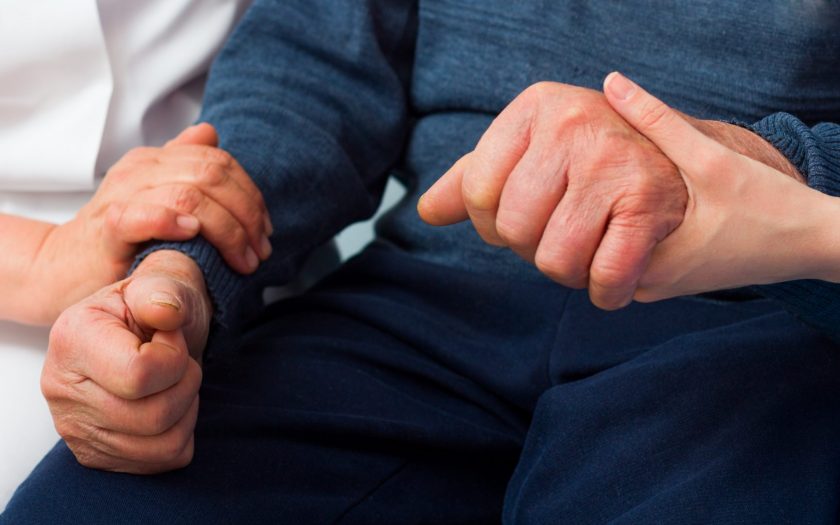Parkinson’s disease manifests itself in damage to the part of the brain responsible for producing dopamine. When this substance is released in an insufficient quantity, smooth transmission of impulses is violated, and a person cannot move normally.
Symptoms of Parkinson’s disease
The symptoms of Parkinson’s disease are trembling limbs, slowed movements, and the inability to balance. All these and other symptoms can be observed jointly or separately.
Mentioned violations of the musculoskeletal system not always may be caused by parkinsonism. Arterial hypertension and atherosclerosis also often become the cause of brain damage.
Initially, symptoms in Parkinson’s disease are clearly expressed only on one side of the body, but possibly symmetrical disruption of the movement. Also, patients may have a violation of coordination and sensitivity, loss of expressiveness of facial expressions. In appearance, such patients seem indifferent, although in reality, they perceive different situations of life as ordinary people.
Also, the work of muscles is broken, because of this, the language of a person suffering from Parkinson’s disease becomes indecisive. It seems that he does not try to express his words clearly. The handwriting changes: the patient should make a lot of effort to write one or another letter.
Depression in Parkinsonism
In addition to all the above, the patient may be observed vegetative disorders: his appetite disappears, salivation disturbed, the patient suffers from constipation, and there is a need for frequent urination. Parkinson’s disease becomes a cause of depression in a patient, and in this case, the services of a psychotherapist will help.
Depression can be manifested differently: the patient gets tired quickly, he cannot concentrate and keep an eye on one object, it becomes indifferent to everything that surrounds him, it is observed irritability and anxiety, appetite worsens.
Treatment for Parkinson’s disease
Parkinsonism is a progressive disease: symptoms over time get worse, the patient feels worse with each passing time. Ultimately, the patient becomes incapacitated. However, it is important to know that the disease can progress slowly if it is not triggered. For many years, the patient can lead a normal life if professional treatment is provided.
You can treat Parkinsonism. For this purpose, medicines (such as Apo-Ropinirole, Bexol, Madopar) and even a special device, which is implanted in the brain and stimulates its activity, are used. Perhaps even surgical intervention (stereotaxis method) can be used. Currently, active searches for effective ways to fight this disease are ongoing.
The patient must move as much as possible: be sure to entrust him with some simple tasks related to the movement, in the morning and in the evening patient must to do some exercise. When the patient is in a hospital – physical therapy, massage, electrostimulation of muscles can be used. In the complex of therapeutic measures, in addition to medicines, it is necessary to include biological stimulants.

